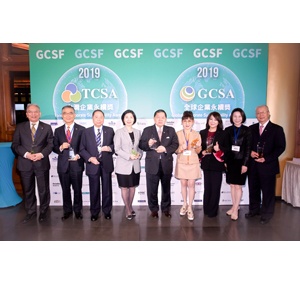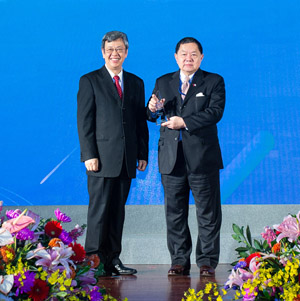01.2020 Cover Story
Looking at the new trend of sustainability development of global enterprises in 2020
Sustainability Development Service Department, sustainability development service company / Li Yihua, chief accountant, Lin Jingen senior vice president
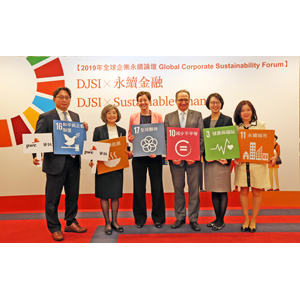

In September 2018, global warming caused glaciers in the Alps to melt. Swiss people dressed in black and climbed the nearly 3000-meter Pizol to hold a "funeral ceremony" for the melted glaciers. In August this year, the wildfire spread in the rainforest, the Amazon, even worse than in previous years, which is the largest rainforest in the world with the reputation of "the lung of the earth" and covers an area equal to half of the U.S. land area. It was clear to see even in NASA's satellite images, causing governments in many countries to call for action and denounce Brazil's Jair Bolsonaro for inaction. From November to now, wildfires continue to burn in southeast Australia. Among them, This news that people rescue the koalas which are burned by the fire, but still climb back to the tree and want to live together with the habitat is even more wildly spread all over the world, which is unbearable!
2019 is the most suffering year for the earth. Those above shocking scenes seem to be far away from us and even irrelevant to business operation, but is it true?
In December last year, the Oxford English Dictionary selected "Climate Emergency" as the representative word of 2019, but in fact, as early as last October in Lisbon, Portugal, at the PwC global sustainability conference, the word has been the focus of heated discussion among participants. In other words, climate change is not enough to describe the situation of the global environment. Immediate action is needed to mitigate climate change and avoid irreversible environmental damage emergencies.
The World Economic Forum 2019 has pointed out that "extreme climate" and "climate change" are the biggest risks of the current human economy. The Carbon Disclosure Project (CDP) report also pointed out that many enterprises still underestimate the risk of climate change, and announced that more than 200 large listed companies in the world predict that climate change will cause a total loss of nearly $1 trillion (about NT $30 trillion), and suffer in the next five years! For enterprises, in terms of cognitive attitude, practical implementation and concrete presentation, how should they respond to these seemingly distant and actually imminent hot topics?
1、 The climate emergency affects the operation of enterprises, so it is imperative for enterprises to transform to the sustainable mode
With the 17 Sustainable Development Goals (SDGs) of the United Nations being widely valued by the world, today's enterprise management is not only to maximize shareholders’ income and pursue EPS, but also to pursue CSR and comprehensively reflect the value and impact of the enterprises from ESG (Environment, Social, Governance).
For enterprises, "Corporate social responsibility" was just like "luxury", from the concept of extra foundation and donation as charity in the past, it has now become a "magnifying glass" for consumers, employees, society and even investors to evaluate and supervise an enterprise. CSR is not narrowly equivalent to charity and public welfare, while "sustainability" is not only about environmental sustainability. In other words, rather than CSR, the international community prefers to talk about "sustainability development" and integrate into product design, production process, market layout, and even sustainable operation planning strategies. More and more data show that enterprises with good management in ESG have stable and excellent performance in the market. Therefore, in the future, it is the general trend for enterprises to have a correct understanding of sustainability development and transform to the sustainable operation mode.
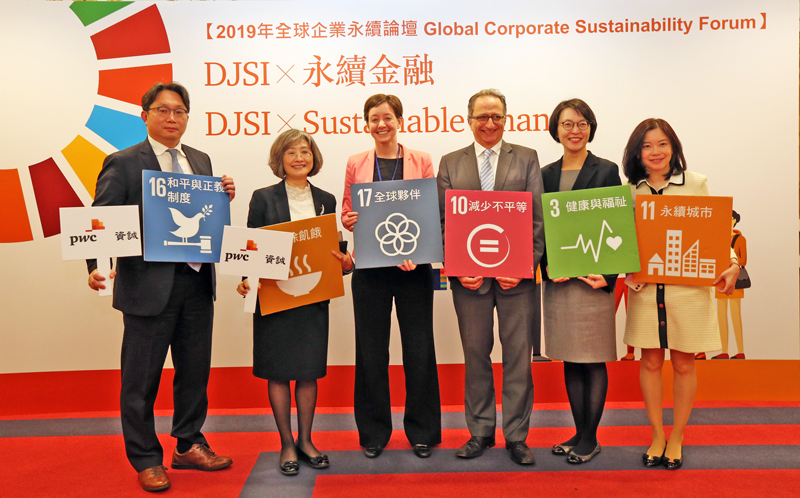
2、 Recycled economy will be popular, and be reflected in supply chain management, the Asian market is more significant
According to a McKinsey report, 90% of consumers of generation Z hope enterprises to take social responsibility and protect the environment, which cannot be underestimated. According to statistics, the consumption power of generation Z in the United States is as high as 350 billion US dollars, and it is estimated that it will account for 40% of the global consumption power in 2020. In the future, the sustainable initiatives of generation Z will be more vigorous. If enterprises want to stand with consumers and gain their recognition, they have to pay attention to this trend.
Not only generation Z, with the growing awareness of carbon reduction of all consumers, enterprises should not only adopt the mode of "out of sight, out of mind", but also actively inject the concept of sustainability into the products and design and services, and take responsibility for the environment and society from design, production, packaging to sales. Therefore, enterprises will more consciously introduce "recycled economy" and adopt a recycling production and sales mode that can reduce waste and even recycle. Internationally, "recycled economy" has been regarded as the most important trend and strategy for a long time.
For example, Nestle began to use recycled packaging to seize the pockets of generation Z; Rolland, a large paper mill in Canada, successfully used biogas as energy or recycled water to reduce waste; some shampoo manufacturers abroad launched a "bottle renewal" plan, set up a "shampoo filling station", and consumers can enjoy discounts if they refill with the old bottles, proclaiming their spirit of striving to reduce waste.
According to the survey of NFO- Forum For The Future, Asia will be a major place of development of recycled economy in the future for three reasons:
1. By 2030, the consumption power of the middle class in Asia will reach 59%. Most of these people are millennial consumers, who will choose pollution-free products more consciously and will also affect the actions of the industry.
2. The business model of family business is quite popular in Asia. To ensure the stability of family business, more attention will be paid to corporate social responsibility.
3. Thanks to the progress of network technology and logistics technology, bad fame will spread widely and affect the profitability and reputation of the enterprise.
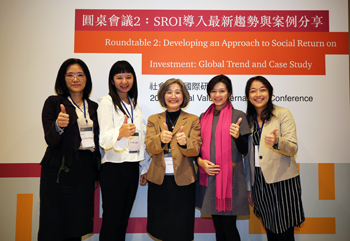
3、 Sustainable finance promotes global sustainability development and drives enterprises to quantify risk and value
At the Global Corporate Sustainability Forum at the end of November last year, PwC held DJSI x Sustainable Finance, inviting Edorado Gai, Director of RobecoSAM AG in Switzerland which is responsible for the evaluation of the DJSI, Helen Schuler, director of PwC's sustainability department in Australia, and Chairman Liu Zongsheng of Yuanta Funds, Delta Electronics and other international experts in the field of sustainability, together with domestic advanced industries to discuss how sustainable finance can drive the sustainable operations of enterprises.
Why focus on Sustainable Finance? Because the global sustainability development has reached a critical moment, that is, the implementation of sustainable finance, only fund owners (including stock and bond markets, banks, insurance industry, trust funds, private funds, family funds, etc.) can really inject funds into the sustainability field and support the enterprise in sustainability development, therefore, the so-called renewable energy development, energy-efficient production and products, intelligent innovation and R & D, utilization and effective use of resources, shared economy or recycled economy and other subjects can be implemented, so global sustainability development can also have real endurance.
Enterprises should respond to the trend of sustainable finance and attract the favor of institutional investors. How to quantify the intangible risks, opportunities and social values in operation and finance under the topic of climate change is an inevitable task. Here are a few noteworthy new trends:
1. Sustainability Accounting Standards Board. Effective integration and disclosure of financial and non-financial performance.
Through the international reporting framework such as the CSR report compiled by GRI, which covers major ESG issues, it is conducive for enterprises to conduct inventory by themselves and examine sustainability development results. However, in order to make enterprises respond to international institutional investors more efficiently, the latest international reporting framework, SASB Sustainability Accounting Standards Board, has emerged. According to different industries, it stipulates the key sustainability projects that enterprises must disclose in addition to financial statements, so that investors can see clearly the goal setting and results of development of enterprise sustainability development, integrating and disclosing financial and non-financial performance.
2. Task Force on Climate-Related Financial Disclosures. Intensive disclosure of climate-related financial risks
In June 2017, the Task Force on Climate-related Financial Disclosure (TCFD) released the framework and guidelines for the disclosure of climate change related financial information, which can help enterprises to explain the financial impact of climate related risks and opportunities, so as to provide investors with more reference information. At present, "Task Force on Climate-related Financial Disclosure" (TCFD) has also been taken as the key point of international sustainability assessment institutions such as DJSI.
Many Taiwanese enterprises, such as Delta Electronics and Yuanta Financial, have cooperated with PwC to introduce TCFD. For example, they quantify the financial impact of risks and opportunities caused by climate change, optimize the company's managerial decisions, and provide the financial system with the opportunity to reflect climate issues to its pricing basis. Among them, Delta Electronics took the lead in disclosing climate change information according to TCFD framework in 2017 annual report, and Yuanta Financial also introduced TCFD to integrate its methodology into the design and management of operation and financial commodity services.
3. SROI (Social Return on Investment) Far EasTone Telecommunication makes good use of monetization tools, so that CSR can see input and calculate impact
On December last year, Social Value International Conference 2019 moved to Asia for the first time and was held in Taiwan. It was sponsored by Social Value International of the UK, which promotes the Social Return on Investment and Taiwan Social Influence Research Institute. As a member, PwC also presided over the round table of "latest trend and case sharing of SROI introduction" to analyze the latest trend of enterprises' introduction of SROI in Taiwan in recent two years.
According to the PwC’s statistics, the number of certified and open SROI reports issued by Taiwan is the second in the world (only next to the UK) and the first in Asia (72%), with 77% of the SROI reports implemented by PwC. SROI can monetize the intangible social participation of enterprises and the effectiveness of CSR public welfare projects as an important reference for enterprises in public welfare investment, internal decision-making and CSR strategic layout, so as to create greater social influence for enterprises. In 2017, DJSI added the "impact measurement and evaluation" group, which is to meet the needs of investors and confirm whether enterprises quantify social influence.
In 2017, Far EasTone Telecommunication completed and published the world's first Chinese version of the "predictive" SROI report with the help of PwC. For the annual "Guard the earth and let love spread" environmental education project, it was calculated that each input of NT $1 could create a value of NT $3.17, and become an important reference index for decision-making, timely optimize the implementation method. In 2018, the "evaluative" SROI report was again carried out to improve the follow-up social value of the project, so FET became the first enterprise in Taiwan to manage the same project with SROI methodology and issue predictive and evaluative SROI reports, fully demonstrating the vision of management of sustainability of Far EasTone Telecommunication.
SROI enables CSR to not only see input, but also calculate impact. It becomes a reference index for enterprises and public organizations to manage public welfare activities, helps enterprises measure, manage and maximize the impact value created by public welfare activities.
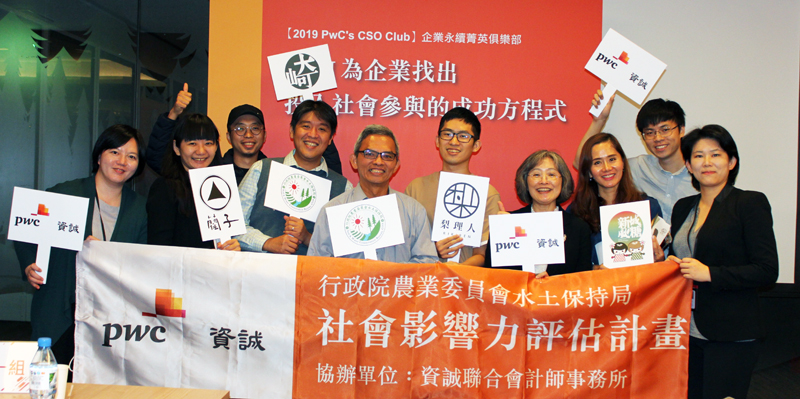
Epilogue
Globally, investors continue to focus on how to integrate and disclose financial and non-financial performance. Therefore, enterprises need to assess the risks and opportunities that ESG may encounter internally, disclose them through systematic and monetization tools, and respond to external requirements and challenges, so as to gain insight into sustainable opportunities in the increasingly severe climate and market environment. At this critical moment, climate change is not real enough, and climate emergency is our real situation. Are you ready for the issues that these enterprises will inevitably face?



